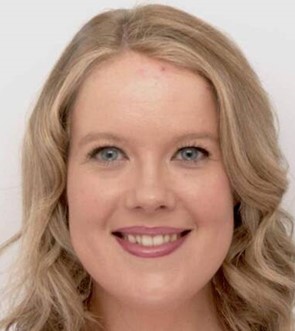Our AHP Clinical Lead

Sammy is the AHP Clinical Lead for the Tony Hudgell Rehabilitation Programme. Sammy is a Highly Specialist Occupational Therapist by professional background, with over 11 years of experience working in paediatrics, including community, in-patient and educational settings.
Sammy’s passion for paediatric rehabilitation has flourished over the course of her personal and professional development. Her knowledge and skills have been developing and consolidating through practice in recent years. Sammy is currently undertaking a Masters degree in Advanced Professional Practice in Neurorehabilitation with Plymouth university.
Identifying the access and provision of rehabilitation services for children with complex needs across the South Thames region.
This programme of work is a collaboration between the South Thames Paediatric Network (STPN) and the Evelina London, in association with the Institute for Women’s and Children’s Health (KCL). It has also recently been adopted by the National Institute of Health Research (NIHR) ARC, SE London.
The programme is funded via the Evelina London Charity, on behalf of the Tony Hudgell Fund. This is the money that Tony raised, with the support of his family, so that more children like him can receive the care and treatment they deserve. You can find out more about Tony’s fundraising here: Tony Hudgell’s trailblazing first steps – Evelina London Children’s Charity (evelinacharity.org.uk)
The lived experience of Tony and the breadth of healthcare needs he has, is an illustration of the importance of timely access to rehabilitation and habilitation, to help children and young people live the best life possible.
What are we doing...
Context
Our experience shows that there is a wide variation in the treatment children receive within and across boroughs and regions, regardless of what their needs are. Early access to personalised rehabilitation has the potential to maximise quality of life and independence for children and young people.
It is increasingly acknowledged that this can minimise long-term disability and reduce dependency on family members, and on health, education, social and welfare services. However, we know there is a significant gap in the availability of rehabilitation services for children in the South Thames region, meaning that many children cannot access the care they need.
Aims
In this first 18-month phase of a proposed 4 year programme, we are seeking to understand what it is like to access children’s therapies and rehabilitation services at the moment. This includes:
- Gathering information on what is currently being provided and where there is unmet need, from the perspectives of children, families and service providers.
- Engaging children and young people (and their parents/carers), to understand their experiences of accessing rehabilitation and how well their needs are being met.
- Bringing together a network of professionals, including the Allied Health Professional workforce within the South East region, to consider exemplars of good practice and areas for development in relation to rehabilitation delivery.
Rehabilitation and Habilitation
The scope of this work includes children with ‘complex needs’, ‘rehabilitation’ and ‘habilitation’ needs. We have chosen to move away from diagnostically led definitions when considering children who require rehabilitation, and instead we have used a needs led definition. This encompasses the diversity of need that children may have across their lifespan, and can include one or more of the following: a physical health, mental health, special education and/or speech, language & communication need. These ‘complex needs’ may overlap and co-exist, and are exacerbated by other factors, including social, societal, environmental and personal factors, referred to as ‘situational complexity’.
‘Rehabilitation’ is considered as part of a continuum with ‘Habilitation’. This means that we want to include children who can recover from an injury, but also extends to those who will have ongoing and lifelong needs, where the rehabilitation is developmentally focused – these children benefit from accessing services that support them to live well in the community, despite their needs.
Examples of rehabilitation include but are not limited to:
- Supporting a child with a long-term condition to maximise their independence with activities of daily living
- Helping a child to self-manage symptoms of their condition so that they can remain in school, equipping them with strategies to reduce the risk of developing secondary problems
- Early intervention to help a parent settle and feed their premature baby
- Therapy provision for a child with developmental difficulties, to develop their communication skills before starting school
Expected outcomes
Phase 1 of this programme will identify the rehabilitation needs of children and young people, areas of best practice, and gaps in access to rehabilitation for children and young people across the South Thames region (South London, Kent, Surrey and Sussex).
This will enable learning to be shared between commissioners, providers and service users. By identifying the unmet needs of children in the region, we will have the opportunity to specify what is required to address these unmet needs, and influence quality indicators for rehabilitation service delivery.
These findings will be reported to the Evelina charity at the end of Phase 1, with recommendations for implementation. A report will also be disseminated via the host network (STPN) to service users, providers and commissioners.
An overview for Phase 2
It is anticipated that the intelligence gathered in this phase of the project will contribute to a defined translational research project for the second phase, which once complete, aims to deliver recommendations to commissioners for how to ensure the rehabilitation of children and young people in the region are met. In addition, providing exemplars of best practice, which will be published to inform how services should be commissioned and provided in the future.